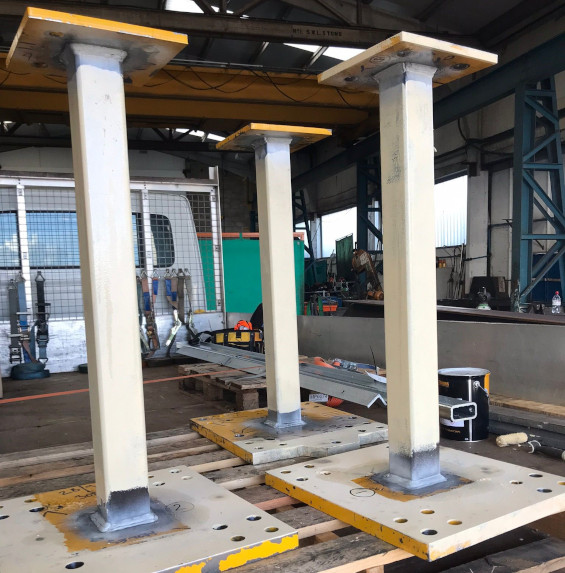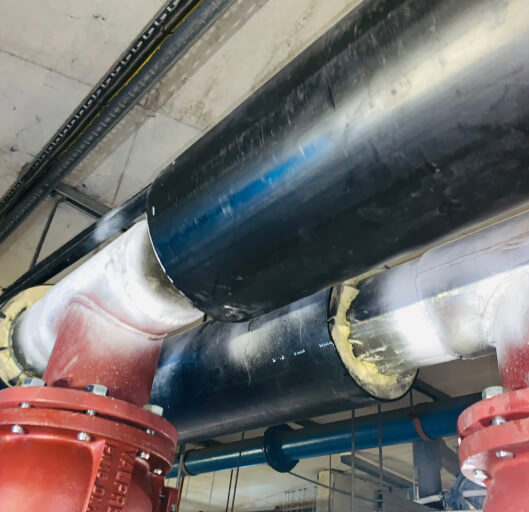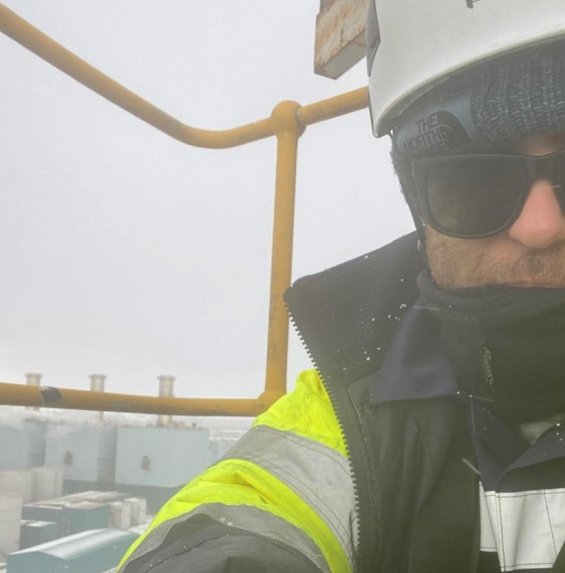“Hayley and STW have been a great asset to our company and have assisted us with their knowledge and professionalism.”
Magnetic Particle Inspection (MPI) detects flaws on or near the surface of ferromagnetic components. This NDT method is particularly useful for crack detection, as very slight irregularities are made visible as disruptions within the magnetic field that is produced. Our technicians have more than a decade of experience carrying out these inspections within a range of industries, including rail and structural steel. Call 01795 432 634 to arrange an MPI test for your component or weld. We can carry out visible medium and fluorescent Magnetic Particle Inspection methods.
What do MPI tests involve?
Magnetic Particle Inspection involves magnetising a component, typically using a handheld electromagnetic yoke, to produce a magnetic field. The component will be sprayed with a fine layer of white paint to create a contrast, allowing the results of the inspection to be interpreted easier. A solution of iron filings suspended in liquid is applied to the component as a way to reveal any defects that may be on or near the surface. These discontinuities will disrupt the magnetic field within the component and cause the iron filings to build up around the affected area(s). In the event that a component cannot be painted due to its intended use, fluorescent ink and a UV lamp can be used to carry out Fluorescent Magnetic Particle Testing. This highly sensitive method is particularly useful for inspecting small items and items which would not be suitable for painting.
Hear from our clients
“Great service, friendly, helpful and accommodating.”
“ST&W Inspections are a very reliable supplier of ours. They are quick to support us at with any inspections that we require sometimes on a short turnaround. This includes completing paperwork that we require to give to our clients and also if an inspection is required on site, they are always reliable to be able to meet our demands. Also, their knowledge of the industry is massive support to us when we require information when we might not have the answers.“
“It is genuinely a pleasure doing business with you and I look forward to continuing the relationship and using your services“
Talk to our team
Discuss your Magnetic Particle Inspection requirements with us by calling 01795 432 634 or sending an email to info@standwinspections.co.uk. You can also complete our contact form for a response within the day.

Magnetic Particle Inspection services: Are these what you need?
MPI is a versatile NDT method that can be used for a variety of industrial applications. Magnetic Particle Inspection for welding or components is a portable and cost-effective technique for:
- Locating fine irregularities on the surface of a component, particularly detecting the presence of cracks.
- Inspecting components with irregular shapes, so long as they are made from ferromagnetic materials.
- Assessing whether your component is safe and compliant with the relevant industry standards.
MPI inspection or Liquid Penetrant Testing?
If your weld or the surface of your component requires inspection, you may be wondering whether you need Liquid Penetrant Testing or a Magnetic Particle Inspection. In many cases, the most suitable method will be determined by the component’s material, as MPI is only suitable for ferromagnetic materials. Popular alloys such as stainless steel and aluminium will require LPI instead. Another consideration is the intended use of the component. If the surface cannot be painted, LPI will be recommended as an alternative to MPI. This prevents the appearance of the component from being altered by the testing process.

Alternate NDT techniques
Alongside Magnetic Particle Inspection, our offering covers a range of NDT methods. We can also carry out offsite DT via our sister company, S.T & W Laboratories.

Ultrasonic Inspection
Ultrasonic Inspection uses ultrasonic sound waves to obtain internal information about a weld or component.

Visual Inspection
Visual Inspection identifies inconsistencies on the component’s surface, using the eyes of an expert technician.

District Heating NDT
Pipelines in heating networks can be assessed using our method to reduce inspection costs and prioritise safety.

Phased Array Ultrasonic Testing
Phased Array Testing uses an advanced transducer to create a clear, detailed internal image of a component.

Positive Material Identification
Positive Material Identification analyses the exact composition of the material used in a component.
Working with
S.T & W Inspections
Working with our team allows you to benefit from our industry expertise. We can get technicians onsite with very short notice, so you don’t have to wait for an inspection. Innovation is a quality we prioritise within our processes, honing our approach so that we are as efficient and effective as possible.

Responsible Welding Co-Ordinators
Responsible Welding Co-Ordinators (RWCs) are an important part of our team. They can help you ensure your weld procedures are adhered to and your finished welds are compliant with the relevant British Standards. You can rely on their expert supervision and can consult them for new weld procedures if required.
Contact
S.T & W Inspections
To discuss your NDT requirements and discover more about our Magnetic Particle Inspection services, contact our team on 01795 432 634 or email info@standwinspections.co.uk.
